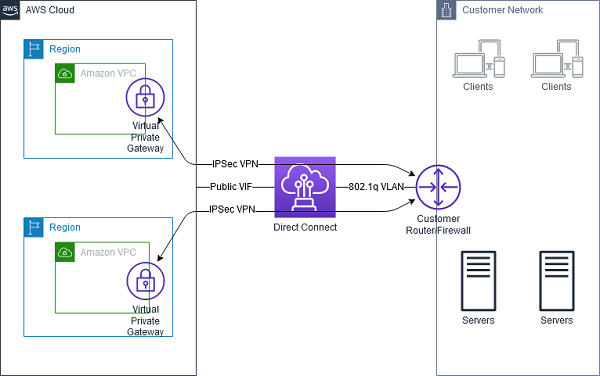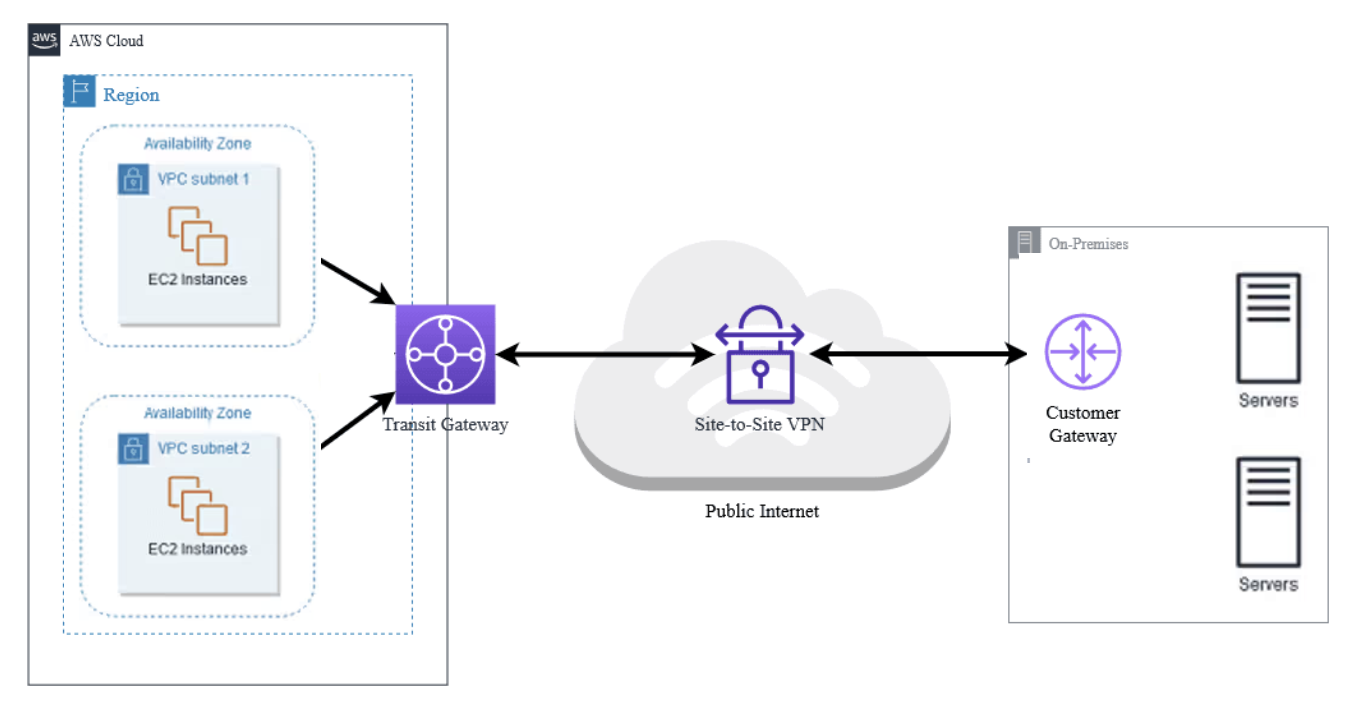In the modern digital age, securing your online presence is paramount. A Virtual Private Network (VPN) serves as a vital tool for safeguarding your data and ensuring privacy. Whether you’re an individual seeking enhanced security or a business protecting sensitive information, setting up a VPN can be an invaluable solution.

Image: jayendrapatil.com
If you’re planning to implement a VPN on Amazon Web Services (AWS), this comprehensive guide will provide you with the necessary steps and insights to establish a secure and reliable connection. AWS offers unparalleled scalability, flexibility, and cost-effectiveness for your VPN requirements. Get ready to embark on a journey to online security and privacy!
Understanding VPNs and Their Benefits
A VPN creates an encrypted tunnel between your device and a remote server, allowing you to transmit data securely over public networks. By encrypting your internet traffic, you can safeguard your online activities from eavesdropping and hacking attempts.
The primary benefits of using a VPN on AWS include enhanced security for remote access, protection of sensitive data while transmitting it over the internet, and the ability to bypass geo-restrictions and access content not available in your region.
Setting Up Your VPN on AWS: A Step-by-Step Guide
Follow these detailed steps to establish a VPN connection on AWS:
- Create a VPC (Virtual Private Cloud): A VPC defines a dedicated section of the AWS cloud where you can launch your VPN resources.
- Launch a VPN Gateway: A VPN Gateway serves as the endpoint for your VPN connections. Create one in the VPC you established.
- Create a Customer Gateway: Your VPN must establish a connection to your on-premises network. Configure a Customer Gateway to represent your on-premises network settings.
- Establish a VPN Connection: Link your VPN Gateway to your Customer Gateway to establish the VPN connection between your on-premises network and the AWS cloud.
- Configure Routing: Ensure proper routing rules are in place to direct traffic through the VPN connection.
Tips and Expert Advice for Effective VPN Deployment
Here are some valuable tips and expert advice to enhance your VPN implementation:
- Choose the right VPN protocol: Select a protocol that suits your specific requirements and balances security and speed, such as OpenVPN or IPsec.
- Implement multi-factor authentication: Enhance security by requiring multiple forms of identity verification, such as passwords and one-time passcodes.

Image: www.cloudkb.net
FAQ: Common Questions about VPNs on AWS
Q: What types of VPN connections can I set up on AWS?
A: AWS supports various VPN connection types, including Site-to-Site VPN, Direct Connect VPN, and Client VPN.
Q: Can I use my own VPN appliance on AWS?
A: Yes, AWS allows you to connect your existing VPN appliances or virtual appliances to the AWS cloud using the Direct Connect Gateway.
Setting Up A Vpn On Aws
Conclusion: Empowering Your Online Security with AWS VPN
By leveraging AWS’s robust cloud infrastructure, you can establish a secure and scalable VPN solution tailored to your unique requirements. Enhance your online presence with the peace of mind that comes from protecting your data and privacy. Whether you’re a cybersecurity professional, a business owner, or simply an individual seeking a secure online experience, setting up a VPN on AWS is an essential step towards protecting your digital assets and ensuring privacy in the interconnected digital landscape.
Are you ready to unlock the power of secure remote access and enhanced online security with a VPN on AWS? Embark on the journey today and experience the benefits of a safer and more private digital world.







